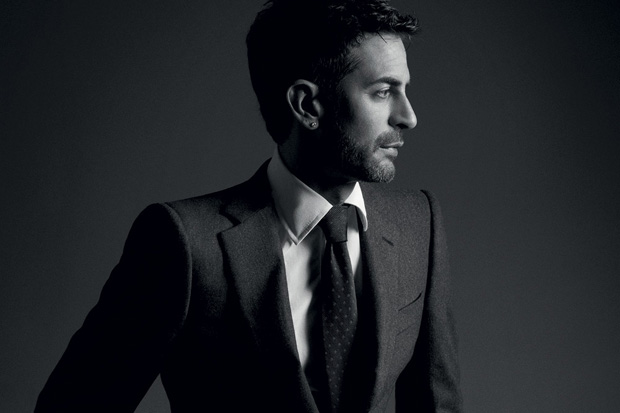Interview Magazine: Marc Jacobs
Marc Jacobs President Robert Duffy interviews Louis Vuitton creative director Marc Jacobs in a

Marc Jacobs President Robert Duffy interviews Louis Vuitton creative director Marc Jacobs in a recent feature for Interview Magazine. Having been worked together since 1984, the interview prods deeply into Marc Jacobs’ life including his thoughts on being a fashion celebrity, the division of Marc Jacobs (the brand) and Louis Vuitton on a design and business level and the expansion of Marc Jacobs into stationary with Bookmarc. Some excerpts of the interview are seen below.
DUFFY: One of the questions that most of them asked—because you have become such a celebrity and have courted the media for a long time—is whether that approach to fame ever backfired?
JACOBS: It’s funny to do this with you because you already know all my answers. But there was a whole period where I was very happy to stay in. I was in my studio for many hours a day—sometimes working and sometimes sleeping. But when I went through this physical transformation and my diet changed and I went to the gym, I felt much more confident about myself. I like being out there. As I’ve said before, I love attention. Sometimes that attention is great, like when we get attention for doing a great show or our sales are good or even attention for walking down the street and looking sexy. That’s all great. But unfortunately along with that comes a lot of negative comments: “Oh, we miss the old Marc.” “It was much better when he was grungy.” Da, da, da, da . . . Sometimes it hurts my feelings, but basically I’m really happy with the attention that we get. It’s more work-related than what I’m going through in my personal life. If people weren’t interested in the work then they wouldn’t really care about my personal life. So I think about it logically. The attention toward me is basically because of what we’ve built as a company. If we built a pile of crap then nobody would care what I ate for lunch. We live in a world where people are really hungry for information, and they’re not hungry for information on subjects that they’re not interested in.
DUFFY: That’s probably true. Here’s a question that you’re probably going to find lame but I’m going to ask you anyway. What is your honest take on New York fashion?
JACOBS: I feel like you and I have always felt a little bit outside of a community, or at least, speaking for myself, I have felt like that. There are other designers there who I respect in terms of their work, but I feel like we operate in our own world. We’ve never followed the same path, like, to show at the tents or have a store in a certain neighborhood. We’ve always followed the beat of our own drum. We moved downtown before other people did and we showed at the Armory while everyone else was showing at one central location. I don’t think we did it to be rebellious. We just did what we wanted to do. I can’t speak for the rest of New York. I just feel we are always at our best when we do what instinctively feels right . . . I’m very good at sidestepping questions. [laughs]
DUFFY: We both work at Louis Vuitton and Marc Jacobs. People want to know if there is a conflict of interest in designing those separate brands. Do you prefer one over another? How do you keep them separate?
JACOBS: First of all there are two separate teams, so even if we have the same impulses within a given season, the ways they manifest themselves are so different. And, secondly, geographically they are in two different places. New York is where I was born and raised for most of my life. I think there’s a personal connection to New York. It’s a more personal place for me, so the momentum, the energy, and the attitude has a bit more of a romantic nature to it. Paris is more like fantasy. Also, with Marc Jacobs we have more autonomy over where things go after the show—for our shops and with the ads. Whereas at Vuitton, it only goes as far as the show and then it’s in everyone else’s hands.
DUFFY: It’ll still be there at this point. As for Bookmarc, there was always the Biography Bookstore on that corner, and they were moving because the lease was up. We didn’t force them out or anything like that. I’ve been living in the village for 30 years now. I’ve always wanted there to be a bookstore on that corner, so that’s why I took the lease. And that’s why we’re opening the bookstore.
JACOBS: I’m very excited about Bookmarc.
DUFFY: Back to my asking you. What would it take for you to feel as if you’d sold out as a designer?
JACOBS: If we didn’t believe in what we did, then I would feel that we sold out. As long as we do things with integrity and believe in them and are passionate, I don’t think we’ve sold out. Whether it’s an $11 flip-flop or a $2 key ring or a $2,000 dress, they’re all done with integrity. They’re all done with a design sense. As long as the creativity exists, then I don’t think it’s a sellout. A sellout is putting your name on any piece of crap and then expecting people to buy it because it’s got your name on it. That’s what a sellout is to me.
